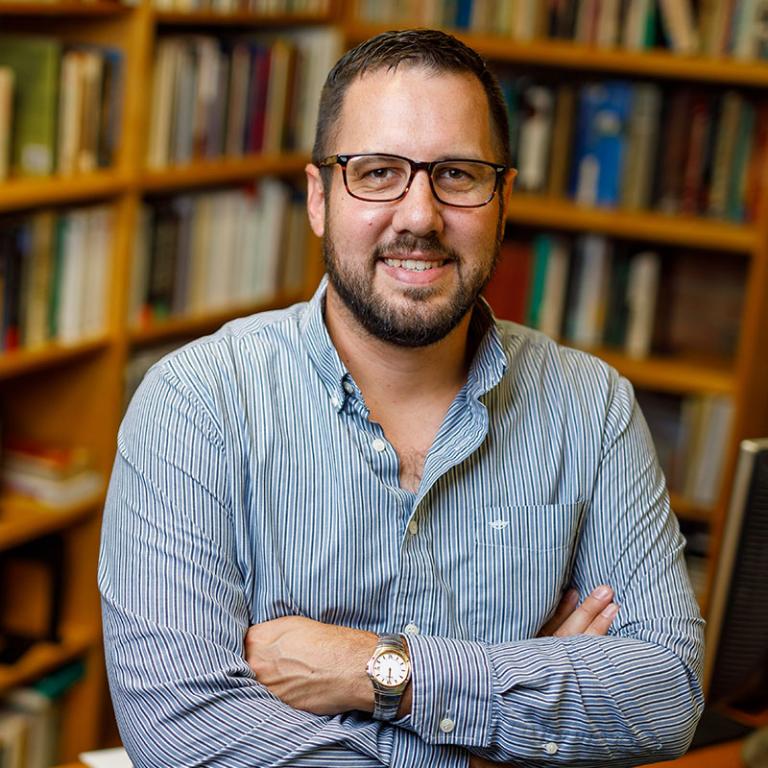Recently Fr. Ed Meeks preached a sermon, “Staring into the Abyss,” which uses Catholic social teaching to provide a thinly veiled political speech against one of the two major presidential candidates, Joe Biden, in the runup to the election. The “sermon” has received over two million views and seems to be making the rounds in conservative Christian circles. I was sent it by a loved one, even though neither of us are Catholic. Below is my response.

Summary
You can find Fr. Meeks’s sermon on YouTube or read the transcript, but essentially it makes five major arguments against Biden for Catholics to consider:
- Joe Biden is unabashedly pro-abortion.
- Joe Biden opposes the Church’s teaching on the sanctity of marriage.
- A Biden presidency would be a danger to our already dwindling religious liberty.
- Although Joe Biden rejects the label of “socialist” his presidency would undoubtedly open the door for America to very quickly become a socialist country.
- Joe Biden’s position on these 4 moral issues as a very high-profile Catholic . . . serve[s] to subvert and undermine the faith of nominal and poorly catechized Catholics.
I’m not Catholic, but I have studied Catholic theology and, in particular, Catholic social teaching (CST). Unfortunately, by using CST to warn against voting for the Democratic nominee for president, Fr. Meeks fails to mention that the rich tradition of CST doesn’t sit easily with either of the two political parties in the United States. A Catholic (or other conservative Christian), then, can weigh the candidates on their own merits and vote their conscience without fear of voting “against the Church.” Let’s break it down further.
Dignity of life and family
Fr. Meeks is right that two major emphases of CST are the dignity of life and the family. But he’s wrong when he limits those two topics to abortion and gay marriage. CST’s emphasis on the dignity of life also leads it to reject, for example, capital punishment and most modern forms of warfare. And its emphasis on family leads it to reject adultery as well as divorce and remarriage (not to mention sexual assault).
Human rights
Fr. Meeks is also right to mention that CST holds religious freedom as a fundamental right, but he fails to mention other fundamental rights it describes, including the fundamental human right to food, clothing, housing, education, and, yes, even healthcare.
“Socialism” and the poor
When it comes to economics, Fr. Meeks is right that CST rejects totalitarian forms of “socialism” such as that found in early 20th-century Europe and mid-20th-century Latin America. But he fails to mention that, as David Bentley Hart writes, there are many kinds of socialism, and the “democratic socialism” of Bernie Sanders and many Western democracies is not what CST is speaking of when it rejects “socialism.” Fr. Meeks also fails to mention that CST emphasizes what’s called a “preferential option for the poor” and the right of workers to form unions and to make a living wage. It is thus equally critical of unbridled free market capitalism as it is of totalitarian socialism. Indeed, on the whole, if CST were put into practice in the United States today, it would have a lot of Americans calling it “socialist.”
What’s missing: solidarity and creation care
Fr. Meeks fails to mention two other major tenets of CST—namely, solidarity of the entire human race and care for creation. The emphasis on human solidarity leads it to condemn much of the US’s restrictive immigration policies (under both Democrats and Republicans, though certainly ratcheted up significantly in the past few years, with zero tolerance and family separation policies and the drastic reduction of refugee, asylum-seeker, and other legal immigration numbers). CST would also reject degrading words and actions toward women and people of color, including black people, Muslims, Indigenous people, disabled and elderly people, and people from other countries.
CST’s emphasis on care for creation accepts the findings of scientists that climate change is, at least in part, a result of human actions. And, indeed, if CST on creation were proposed as a political policy in the US, would be quickly labeled by many Americans as a “Green New Deal.” For example, the recent encyclical LAUDATO SI’ states: “We know that technology based on the use of highly polluting fossil fuels – especially coal, but also oil and, to a lesser degree, gas – needs to be progressively replaced without delay.” It also states that, for environmental policy to be meaningful, “enforceable international agreements are urgently needed, since local authorities are not always capable of effective intervention.” And it speaks pretty directly against the ability of free market capitalism to self-regulate: “Once more, we need to reject a magical conception of the market, which would suggest that problems can be solved simply by an increase in the profits of companies or individuals. Is it realistic to hope that those who are obsessed with maximizing profits will stop to reflect on the environmental damage which they will leave behind for future generations?”
For a brief introduction to CST, see this video:
And here’s a brief history:












